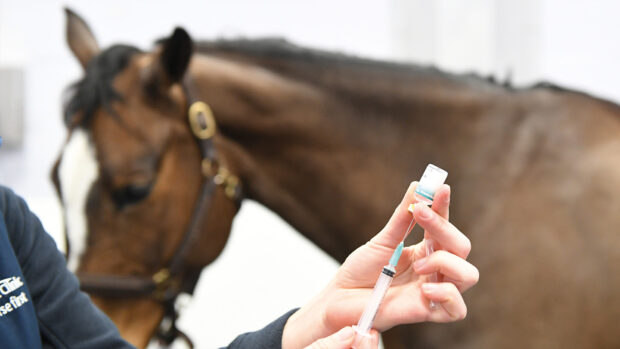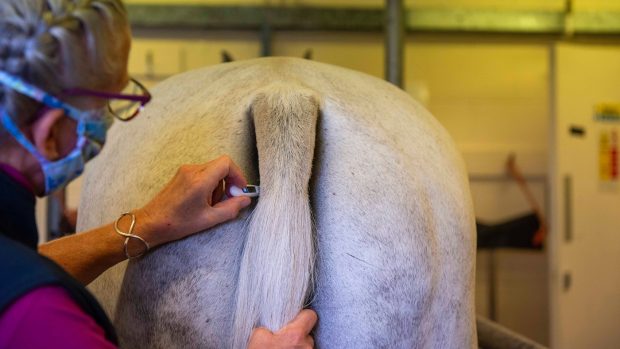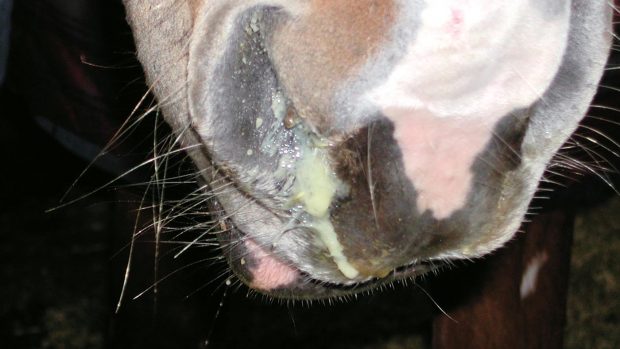Equestrians have spoken out on the human side of dealing with a strangles outbreak, to help others going through similar experiences.
Their stories are being shared as part of Strangles Awareness Week (5–11 May). There were more than 260 lab-diagnosed cases recorded in 2024 by the Surveillance of Equine Strangles scheme and more than 100 diagnoses have already been made this year.
The Mare and Foal Sanctuary in Devon is sharing the story of the outbreak that swept through its centre in 2015, claiming the lives of four ponies, to tackle the stigma around and encourage others to talk openly about the disease.
Sally Burton, head of sanctuary care at The Mare and Foal Sanctuary, said 2015 was a “devastating year”.
“Our team is devoted to rescuing ponies, so it was unbearable for us to watch the infection spread throughout the yard,” she said.
“Ten years on, we still hold a special place in our hearts for those we lost, and our survivors are constant reminders of the need for us to share the valuable lessons we learnt.
“We understand the disease far better now and we believe a no-shame approach, to encourage open conversations within the equine community, could help prevent more unnecessary suffering.”
When strangles was identified in the resident herd at the sanctuary’s Honeysuckle rehabilitation yard in Newton Abbot, all new intakes, rehoming and movement of horses across the site stopped.
Quarantine has always been a priority at the welfare charity. It had different procedures and fewer facilities available to deal with an outbreak then, compared to today with its “transformed” strategy and purpose-built veterinary and welfare assessment centre.
Deep emotional impact
Equine care lead Ellie said there was a deep emotional and physical impact on the care team.
“I’ll never forget that feeling of utter helplessness, watching a foal grow so weak and die in our arms before the vet could get to us,” she said. “All our protective instincts as equine carers were to rescue ponies and bring them to a better life, but this terrible disease was killing the most vulnerable in the herd; the young, the old and the weak.”
She added: “We were exhausted, and one of the things I remember is spending hours holding hot compresses on ponies’ abscesses, just trying to comfort them. Strangles is brutal and messy and you’re trying, you’re trying so hard, and they just keep getting sicker and sicker.
“You feel a misplaced sense of guilt too, because you’re the one who identified that there’s a problem with a pony and you report it to the vet, who advises that putting them to sleep is the kindest option. It’s necessary and the most responsible thing to do, but you’re still the one who identified the problem and that never leaves you.”
“It affected every aspect of our lives because we often worked through the night, and not all partners and families understood,” she said, adding that the team kept its spirits up by creating a mural, adding drawings of the horses as they tested free of strangles.
“Watching the wall fill up was so positive and it made us feel there was light at the end of the tunnel.”
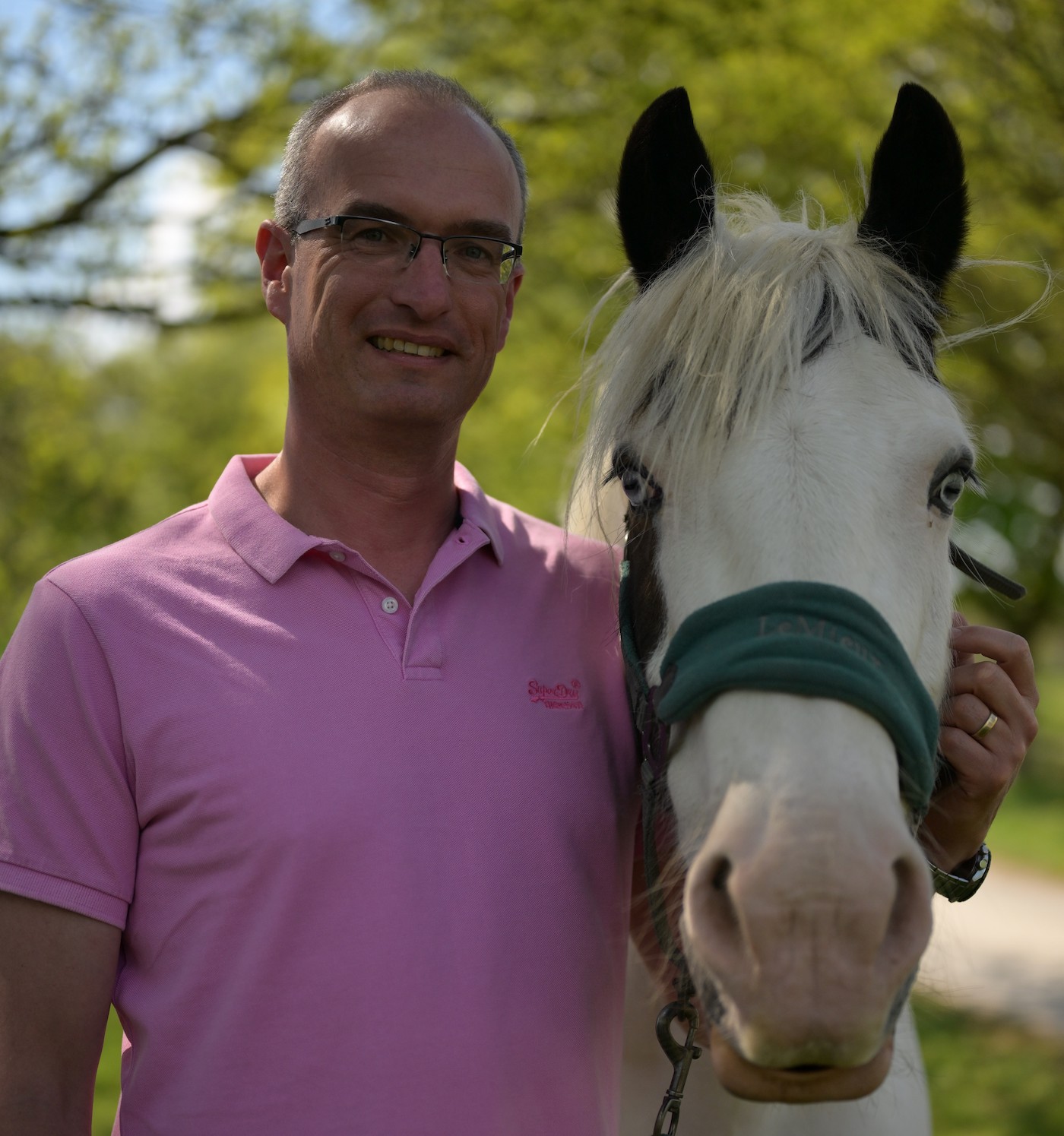
Jonathan Cleaver (pictured, above), co-owner of Ivesley Equestrian Centre in Co Durham, which had an outbreak in 2023, has also shared his yard’s story.
“We’ve learnt a huge amount about the disease itself and a lot about ourselves as well,” he said, adding that they decided to do everything they could to handle the situation in a way that would become “a point of pride for ourselves and for the yard”.
“We had a lot of positive comments online. When our liveries go out and about competing, other people will say to them how well we handled it,” he said.
“You’ll always have naysayers. But ultimately, to get it clear, to get the yard open again, the business open again and to get our liveries out enjoying their horses again, we had to act decisively, we had to act fast, so we did.”
Kathryn Douglass, a vet at Durham Equine, worked closely with Ivesley during the outbreak. She said that everyone pulled together and only six of the 48 horses at Ivesley contracted the disease, which she said is “testament to the vigilance of everyone on the yard”.
“Dealing with an outbreak of strangles is never easy for anyone affected by an outbreak, including us as vets. But from the moment Ivesley found out they had strangles, they were absolutely committed to doing everything possible to protect their horses, while keeping their owners well informed,” said Dr Douglass.
For more information on strangles and the awareness week, visit the Redwings website.
- To stay up to date with all the breaking news from major shows throughout 2025, subscribe to the Horse & Hound website
You may also be interested in:

‘We’re delighted to bring loyal readers this benefit’: H&H magazine subscribers get free website access
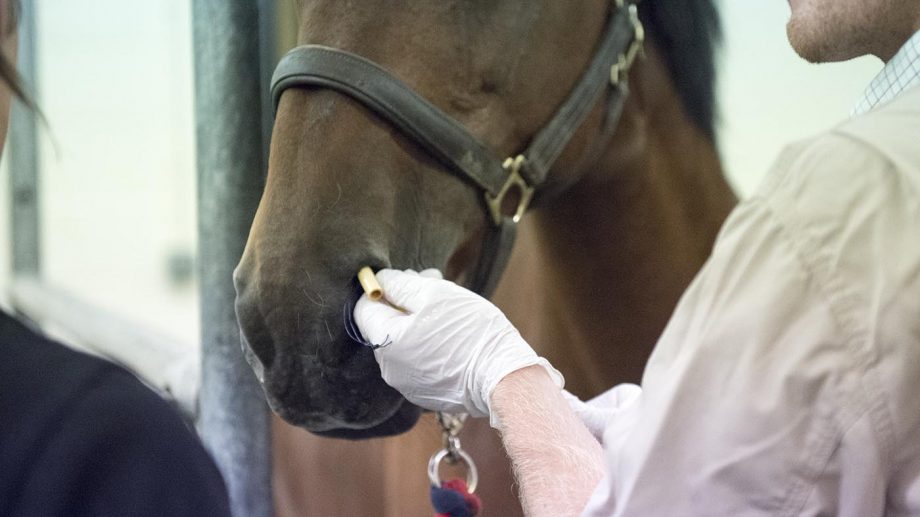
Strangles: what is it, how to spot the signs, plus a new vaccine to help protect your horse

Taking horses’ temperatures can – and has – saved lives


